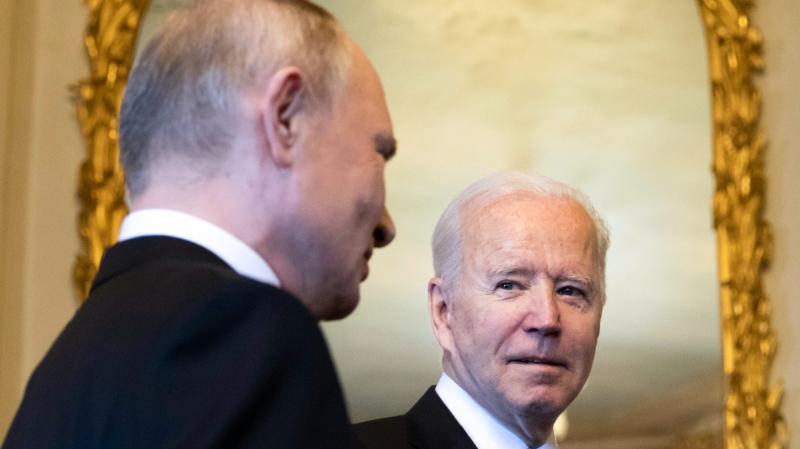Understanding why some in the US don't want victory in Ukraine
By: Bill Schneider (The Hill)
What the hell does victory mean? According to the author, victory appears to mean the neoliberal world order subjugating the world. But neoliberalism has not made the world a better place. The international world order deplores war yet turns every conflict into a global war effort. Financial diplomacy has failed miserably. Governments have become more autocratic. The global rich have certainly gotten richer and the commoners have become more expendable.
The fighting in Ukraine started in 2014. The war in Ukraine has been going on for nine years. Agreements had been negotiated in 2014-2015 to begin the process of ending the war that had already started. The international world order didn't care. Neoliberal globalists ignored the opportunity to resolve the conflict and avoid escalation into a global financial war. In fact, the neoliberals' efforts ensured the conflict wouldn't end.
Neoliberals are only using Ukraine as an excuse to expand the autocratic power of the international world order. Neoliberals are using Ukraine to pursue a global power grab. Neoliberals are depending on American taxpayers fighting a financial war to allow the global rich to become richer. Is that the victory we're supposed to be cheering for?
Putin already declared victory last September when he announced annexation of Ukrainian territory. Biden already declared victory in Kiev by walking the streets and declaring that Kiev remains free. But those sorts of victories won't satisfy global neoliberal greed. So, what does victory really mean? Will peace only be a prelude for the next war?

Russian President Vladimir Putin sees the Ukraine war as purely a matter of Russia's national interest. In his view, Russia is fighting to reclaim territory that is historically part of the Russian empire. The war is a "local issue" that should not be an international concern.
The U.S. and its NATO allies see the Russian invasion as a grave violation of international order — an act of aggression by one sovereign state against another. In President Biden's view, the U.S. has an obligation to defend that order. Just as it did when Iraq, under Saddam Hussein, invaded Kuwait in 1990.
When the first President Bush addressed Congress after the Iraqi invasion, he offered a stirring call to internationalist principle. Our purpose, Bush said, is to "defend civilized values around the world," among them our commitment to "support the rule of law" and "stand up to aggression." Which is more or less what the U.S. is doing now — but without sending U.S. troops.
Putin, however, blames the U.S. and its allies for turning the Ukraine conflict into "a global confrontation." He sees Russia as "the aggrieved victim of a predatory West," as the editors of the Washington Post put it.
President Biden's response: "The West was not plotting to attack Russia." The war was caused by "President Putin's craven lust for land and power."
The dominant bipartisan view since World War II is that the U.S. does not just have national interests: It also has international interests. Primary among these, a commitment to preserve world order and humanitarian values.
The argument for international interests was made by President Harry Truman when he announced the Truman Doctrine in 1947: "It must be the policy of the United States to support free peoples who are resisting attempted subjugation by armed minorities or by outside pressures."
Whenever there is a threat to world order (like Iraq's invasion of Kuwait) or to humanitarian values (like "ethnic cleansing" in Bosnia), if the United States does not do anything, nothing will be done.
What would have happened if the United States had failed to act after Saddam Hussein invaded Kuwait in 1990? Most likely, nothing. Kuwait would have become part of Iraq.
Having acted in Kuwait, the first President Bush left the crisis in Bosnia to the Europeans. Bosnia was in Europe's backyard. The U.S. had no vital interests there. What happened? Nothing.
The Europeans failed to act, and a new horror entered the world's vocabulary: ethnic cleansing. Finally, the U.S. felt morally compelled to step in and lead a coalition to end the brutality.
When atrocities occurred in Cambodia, Rwanda, Congo and Darfur, the whole world — including the United States — looked away. So, nothing was done. The result was genocide.
The view that the United States has international interests as well as national interests has been the consensus of the U.S. political establishment of both parties since 1947. The American people have never completely bought into the idea, however. And it is now being challenged by a populist movement on the far right.
It started with Donald Trump, who argued that the U.S. has no interest in protecting the liberal world order. Most memorably, in his 2019 speech to the United Nations General Assembly he declared, "The future does not belong to globalists. The future belongs to patriots." In other words, America First.
Trump's neo-isolationist views have been echoed by some on the right who oppose President Biden's support for Ukraine. Florida's Republican Gov. Ron DeSantis denounced the Biden administration's Ukraine policy saying, "They have effectively a blank-check policy with no clear strategic objective … I don't think it's in our interests to be getting into a proxy war with China."
In some measure, this is pure partisanship, predictable in a time of bitter political polarization. But some on the far right see Putin as an ally in the U.S. culture wars. Putin regularly accuses the West of moral depravity. He told the Russian people in his annual state of the nation speech, "Millions of people in the West understand that they are being led to a real spiritual catastrophe. The elites, one must say, are simply going crazy."
The war in Ukraine is a steel cage death match for Putin and Biden. It's hard to see how Putin could stay in office if Russia is driven out of Ukraine (though it's unclear who would succeed him). It's also hard to see how Joe Biden could be re-elected if Ukraine falls to the Russians. If the war is fought to a stalemate, it's not clear how either of them could survive politically without being able to claim "victory."
Bill Schneider is an emeritus professor at the Schar School of Policy and Government at George Mason University and author of "Standoff: How America Became Ungovernable" (Simon & Schuster).






Neoliberals want it all and the world is not enough. So, what does victory really mean?
.. and apparently using the term a dozen or so times is not enough. What political/economic system do you propose? Some form of Balkanized libertarianism?
A fundamental tenet of neoliberalism is to create a rule-based system of interdependence where self interest is motivated to maintain the system. An interdependent system is much like a spider web that benefits predators. Neoliberalism really is Balkanized libertarianism -- socialism for predators.
Can you name a system without predators and prey?
Buddhism?
Are sports leagues predatory? Don't confuse competition with predation.
"Whenever there is a threat to world order (like Iraq's invasion of Kuwait) or to humanitarian values (like "ethnic cleansing" in Bosnia), if the United States does not do anything, nothing will be done"
The Europeans didn't care much about what was happening to their east, until the shit hit the fan last year. Trump insisted that the NATO countries pay their fair share, which is starting to happen now since it can't be avoided.
It's not in America's interest to accept that the war actually started in 2014, because American armaments were not so involved then, and since armament sales are an important part of the American economy, providing "just enough" armaments and aid to keep the present conflict going instead of ending it is in America's "national interest". so it will raise the stakes incrementally pouring fuel on the fire and fanning the flames. And as well, in the meantime, America will continue to keep belligerence with China boiling with its provocations concerning Taiwan increasing (just sent quadruple the American troops there and accusing China of considering sending armaments to Russia when China JUST put forward a policy paper to achieve peace) while hypocritically saying it adheres to the "One China Policy", just in case the war ends in Ukraine so it's another one they can start to benefit its military indstrial complex and general economy. Did I not read recently that in considerably more than the last century America has NOT been involved in wars for only 16 years (notwithstanding that the only one that invaded America since the 1812 war was in 1941).